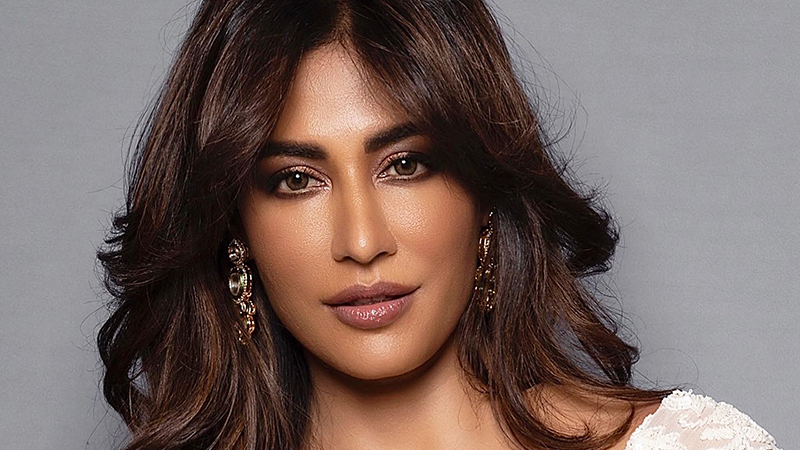Chitrangada Singh had this certain innocence when I met her 24 years ago, with her former husband and golfer Jyoti Randhawa at the Delhi Golf Club. I found that she had a dusky complexion, doe eyes and frankly she was stunning, only 25. My feature on her appeared in the popular ‘The Girl Next Door’ section of the newspaper I worked for. It feels like yesterday. I can take credit for discovering her! And she agrees.
Life has indeed come full circle since then. A big star now, Singh exclaims, “When I met you, I was so young. I think there are changes probably internally more than externally – I must admit I was very naïve. There was a certain innocence about the work you do and the talent you have or what you want in life. Those are the kind of things which change over time, when you realise where your strengths lie, and what your weaknesses really are. You are then happier about where you have arrived. These are the kind of changes that happen to anyone, not just me,” says the actress, best known for her role in the Sudhir Mishra film Hazaaron Khwaishein Aisi.

Singh reiterates it has been a fun ride, doing different things at different times in her life. All the roles have been very enriching – the crime thriller Yeh Saali Zindagi, Desi Boyz, and I, Me Aur Main, to Baazaar, Bob Biswas and Gaslight. She turned producer with the sports drama Soorma. “I don’t think one can be done without the other. All the roles come in handy, when you start to act, you draw from all your experiences, especially the emotional ones. And they help you as an actor,” she adds.
The most important role for her has been that of being mother to Zorawar, who is now 14. “I enjoy being a mother, and any parent would say this. It has been the most satisfying experience and a gratifying role for me in life.” Singh’s ex-Army officer father taught the Jodhpur-born actress well, to always put what makes you happy first.
“I would love to produce a biopic, I think this love for cinema will last forever, though I found it late in life. There have been a lot of stops and starts for me in my career, but my love for films is an enduring phenomenon,” she confesses.

After living many years in oblivion, probably trying to get a grip on her personal space, Singh realized that you must do things for the right reasons. “I’m in love with cinema – acting is only one aspect; you should start writing, direct a short film, get involved with every aspect, understanding it from every angle,” she says. Facing unpredictability of roles and good characters, makes you less dependent on just the one job, acting! “Many times, I see actors, getting nervous about the next job, whether they will bag it or not. When you diversify your skill set, it becomes a lot more than just the competition – you realize it is about passion,” she says.
Singh turned producer with the film Soorma, a huge learning curve according to her. She understood a lot more about the business after this project, she says. “It was very tough, extremely difficult, but hugely satisfying; I must admit the process is arduous and long. A producer really must commit, you know we talk about actors committing, producers must do it more. It took us a long time – two- and-a-half-years – to put that film on screen,” she smiles. It taught Singh patience and how to manage creative people dexterously. She is now familiar with how the behind-the-scenes process works. “You also look at actors differently when you are casting people like Diljit Dosanjh and Taapsee Pannu. They were my first choice and I felt a different kind of excitement. I loved it and am thankful to everybody who got involved. Especially, Sneha Rajani, who was heading Sony Films at that point of time, handheld me through the entire process. I must also mention Shaad Ali, who offered unflinching support,” she says.

Singh believes there has been a change in the roles actresses are being offered, though her all-time favourite film is Muzaffar Ali’s Umrao Jaan, and his interpretation of nautch girls’ inner lives. “Nautch girls of that time were extremely modern in their thinking, strong, independent women, who were very confident of their sexuality. They lived in an interesting time. I find characters where women are more uninhibited about their emotions, about who they are and their choices, and have individualistic opinions. This is tough to follow in today’s time,” she adds.
Oscar winner and Meryl Streep starrer The Bridges of Madison County is a film Singh watches repeatedly – the narrative surrounding a woman, who is torn between what she wants and what she needs to live by – for the character she finds exciting to play. “Humour done right is also fun, like Bunty and Babli, which is an amazing livewire. Smita Patil and Shabana Azmi’s roles in Arth, by Bhatt saheb, which are stories of women wanting to sort of claim what they think and deserve. These are fascinating,” says Singh.
A lot of times women’s characters are secondary to their male counterparts on 70 mm, and Singh believes, the writing of the film or the screenplay is not invested in female characters. There isn’t layering or enough writing just centering around them. “Most of the writing, and attention is given to the male protagonist as he is leading the part in the film. It has changed, you can have standout performances, even if you are not leading the film. Even if it is a male dominated cast, sometimes women characters get left out, as they are secondary to the plot,” says the 47-year-old.

In Sanjay Leela Bhansali’s Bajirao Mastani, even though Priyanka Chopra had limited screen time, she really stood out amazingly, feels Singh. “How she owned her own space! It was a well-written role, and it didn’t make a difference to the time Priyanka spent on screen. That’s the mark of a great actor. I’m a big fan of Priyanka’s work; she delivers no matter what.” Dancing queen Madhuri Dixit also, in Hum Apke Hain Kaun, fits into the part of a Hindi film heroine perfectly with her list of memorable performances.
Badhai Ho director Amit Sharma, Lootere director Vikramaditya Motwane, Kabul Express’ screenwriter Kabir Khan, as well as the supremely talented Vishal Bhardwaj, are some of Singh’s favourites. Needless to say, her first director Sudhir Mishra’s work has left a lasting impact on her. “I have learnt the importance of working constantly to remain valid. People will be quick to dismiss you if you didn’t do well. They won’t give you a chance to explain. You must be careful with the team you work with, and get on with the job – work harder, collaborate with dialogue writers, improvise, add your own thing to it, and better your shots on the floor, when you start shooting,” she explains.
Even though Bollywood is the new canvas for stylists and they are experimenting with stars in unique interpretations of fashion, Singh admits she is not a fashionista. She sticks to a style that comes naturally to her, and often she uses it to communicate what she feels. “I do not follow trends. There is a certain style quotient I possess that I am comfortable with. It speaks of who I am – somebody who is a traditionalist, and likes classics in her wardrobe. I enjoy it when I have a stylist, who will dress me up, and tell me ‘Let us try this’. I am open to trying myriad looks that help you transform into a different character. I have a magazine cover coming up where we tried to rewind to the 50s; it also gave me a chance to understand the swinging 60s,” says Singh.

Her foray into Web series is also set, though earlier Singh shied away from it, as she felt characters needed to be written well for an extended format on OTT. “It is far more challenging, even for actors to hold the audience’s attention. I begin shooting in May. You must be exceptionally good with your performance,” she adds.
Singh has faced tumultuous times in her personal life; as a result, she lost out on work. She took a six-year break, and then another two years in between, missing out on many engaging opportunities. To Singh, “life is what it is. You must go with the flow”. She continues, “You prioritize things – it is not something you plan – it is an instinct at that moment which tells you what is right, and what makes you happier. I realized it is a tough world; competition is a killer. You must stay focused, work hard, and stick to it no matter what. If I look back, I don’t have any regrets of how things have panned out for me, and I am thankful to the audience, who have remembered my work.” – Asmita Aggarwal is Fashion & Lifestyle Editor of Nrifocus.com


Leave a Reply